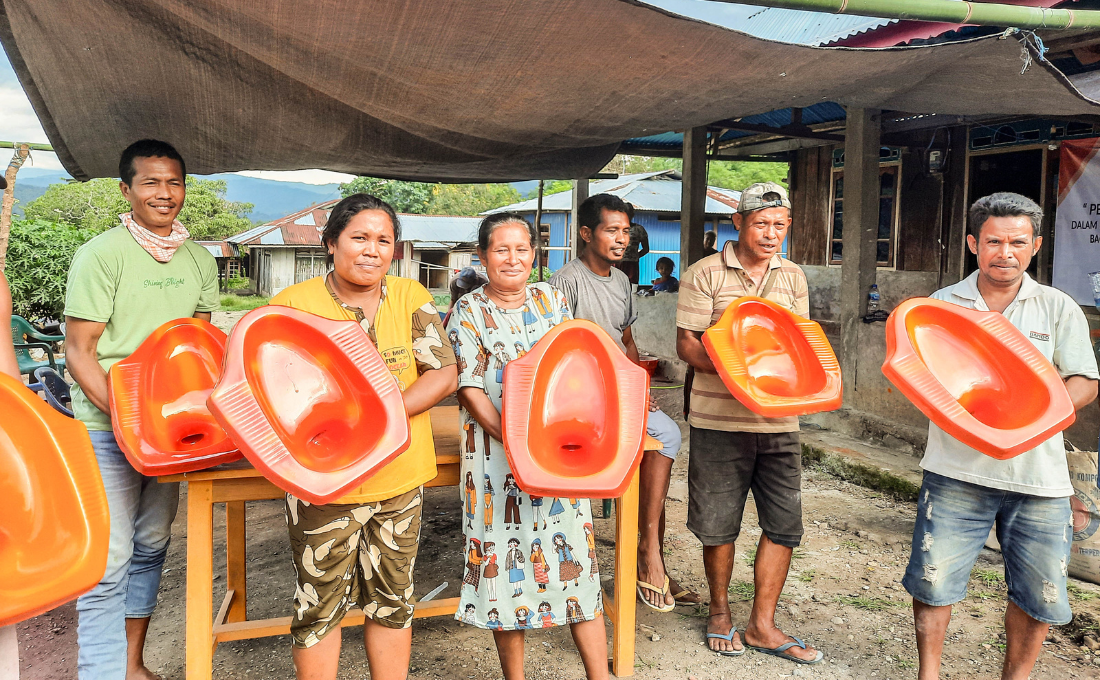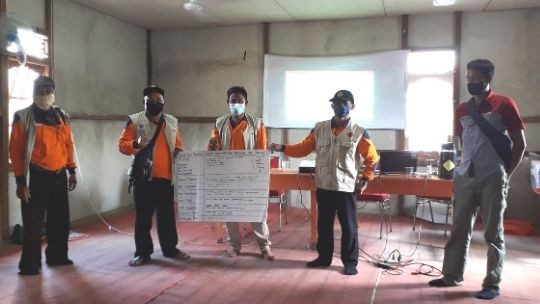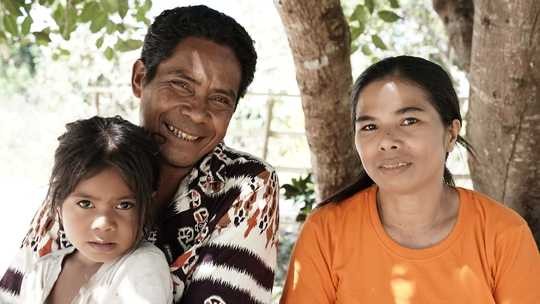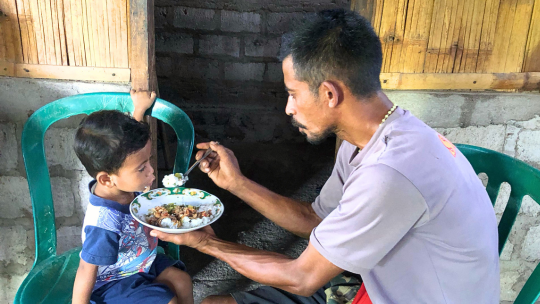WUSAN Fuelling the Village Economy

"Stop Defecating in Neighbours" was once a slogan in two hamlets in a village in Ende Regency, East Nusa Tenggara. The slogan was raised because there are still many houses that do not have healthy toilets in their own homes, so they often defecate in their neighbours' houses. This is also evident from the results of the STBM (Community-Based Total Sanitation) exercise conducted by WVI together with the Ende District Health Office. It was also found that most of the residents who did not have healthy toilets were families with limited economic growth.
Recognising the importance of sanitation in supporting family health, the water committee in one of the WVI-assisted villages also took on the role of overcoming this habit. In addition, the villagers have already pledged to declare their hamlet a Open Defecation-Free hamlet. And because the sanitation problems in the hamlet intersect with economic problems, the water committee, village government and cultural leaders decided to provide training on how to build healthy latrines in the village. It was hoped that this training would trigger the creation of Wira Usaha Sanitasi (WUSAN, sanitary business) in the two hamlets.
The training on healthy latrine construction took place in the village in January 2024. Matias, an employee of the Kupang District Health Office, was the facilitator for this training. In addition to explaining the process of building healthy and efficient toilets, Matias also explained the management of latrines sales. This was based on his own experience as a latrine entrepreneur in Kupang.
"When I see work like this, I think we can do it because Matias teaches us clearly with simple language so we can understand quickly. Besides, we are mostly craftsmen here," said Benyamin, one of the training participants and secretary of the water committee. He continued, "I see that the results of the latrine are the same as in the shop, even our results are better because the mix is really strong. The one sold in shops only look prettier outside. If we sell latrines like this, many people will buy it because the results are very good".
Benyamin and the other trainees hope that healthy latrines can be used not only at home, but also as a driving force for the family economy. The knowledge they have gained through the training will be used in their own home and also as part of the capital to start WUSAN. In this way, not only are children and families living cleaner and healthier lives, but household economic management is also developing.
At present, the WUSAN initiative in the village is still hampered by capital problems. The water committee, village government, community leaders and WVI are working to find solutions to this problem. One of them is to try to establish partnerships with private parties such as banks or credit unions. In addition, the village stakeholders want to involve the church and the Pokja PKP (District Housing and Settlement Working Group) to develop WUSAN in the village. With the synergy that will be created, the sustainability of a healthy and clean village can be ensured and children can grow to their full potential.
Author: Yohanes Brechmans Tanaboleng (FINWASH4UC project member in Ende)
Editor: Mariana Kurniawati (Communication Executive)



